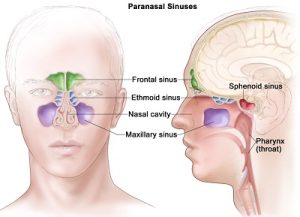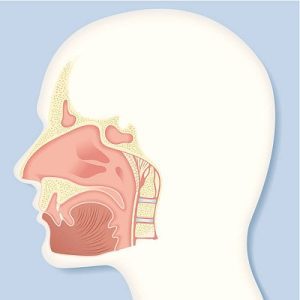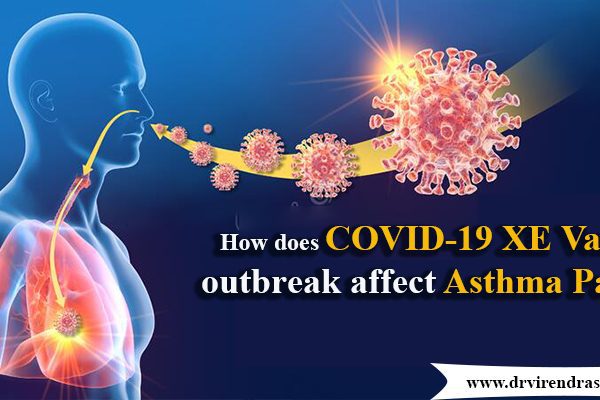
When malignant cells are discovered in the paranasal sinuses or nasal cavities, it is known as sinus cancer or nasal cancer. Cancers of the nasal cavity and sinuses are rare cancers. There is a difference between nasal and sinus cancer and throat cancer. The regions surrounding your nose where mucus is formed or the area behind your nose where air travels on its way to your lungs are the two sites where sinus and nasal cavity cancer can develop as a tumor (or tumors). The symptoms of this uncommon disease are sometimes mistaken for other common sinus conditions.
What are Sinus and Nasal Cavity cancer?

So, when malignant cells are discover in the paranasal sinuses or nasal cavities, it is known as sinuscancer or nasal cancer.
there are numerous forms of sinonasal malignancies, including:
- cancer of the squamous cell
- Adenocarcinoma
- Cystic adenoid carcinoma
- Esthesioneuroblastoma (olfactory neuroblastoma)
- Undifferentiated cancer of the sinuses
What Causes It?
Sinus andnasal cavity cancer may be related to cellular DNA damage, like many other malignancies. Although, doctors are not quite certain that this is the case, but they have identified several potential causes that might damage the cells in your nose and sinuses. They consist of:
- your location of employment You may be more susceptible to sinusand nasal cavity cancer if you work in a place where you are frequently exposed to dust, flour, or chemicals.
- Smoking. Your chance of getting several malignancies rises as a result.
- Your gender and age.Sinus and nasal cavity cancers are more likely to affect men over the age of 40.
- Papillomavirus in humans (HPV). In rare situations, this infection might boost your risk of having sinus and nasal cavity cancer.
To reiterate, exposure to these substances has not been connected to the development of sinus or nasal cavity cancer.
What Are the Symptoms?

So, Early-stage sinus and nasal cavity cancer frequently show no symptoms. They tend to develop as your tumor grows.When they occur,symptoms can resemble those of several other sinus-related conditions. Nasal blockage and nose bleeds are symptoms of nasal and sinus cancer. The patient may also experience facial swelling, loosened upper teeth, nasal pain, and double vision. The symptoms of sinus and nasal cavity cancer, however, don’t go away quickly. They include
- ongoing, worsening congestion
- sinus pressure or obstruction
- Nosebleeds
- nasal headaches
- clogged nose
- nasal drip after.
- Face numbness or discomfort
- an expansion on your face, in your mouth, or your nose
- teeth loosening, hurting, or feeling numb
- changes in the eyesight or eye pressure
- or pressure in the ears
How can I tell whether I possess it?
However, consult your doctor if you have several symptoms that don’t go away with time. A physical exam will be perform. Your symptoms, medical background, and any associated risk factors will be questioned. You will be referred to a specialist for more tests if they suspect that you havesinus and nasal cavity cancer. To aid in locating your tumor, they could also request several imaging tests. X-rays, CT scans, and MRIs are a few examples. These can aid in figuring out whether cancer has spread.
Your doctor will perform a biopsy after locating your tumor and that implies that he will take a small sample of tissue from the tumor and send it to a lab for analysis. A biopsy can assist determine the sort of cancer you have and how severe it is if you do have it. Your doctor will be able to select the best course of treatment once he is aware of these factors.
Conclusion
You no longer need to worry if you’re looking for professional assistance. One of Delhi’s top ENT specialists isDr. Virender Singh and he has 22 years of experience as an ENT specialist. Doctor. He holds an MBBS and an MS in ENT. To consult privately, schedule an appointment online with Dr. Virender Singh today! To make an informed choice, study medical specialists’ profiles and patient testimonials.



